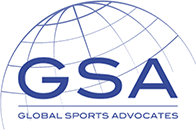Sorry, we cannot find this page, but we hope the sitemap below will help you find what you're looking for.
Home
Service Areas
- Anti-Doping Rule Violations
- Anti-Doping Violations for Professional Athletes
- NCAA Anti-Doping Rule Violations
- Equine Anti-Doping Code
- Sport Integrity
- FIFA Disputes
- Sports Breach of Contract & Contract Disputes
- SafeSport Violation Allegations
- Governance
- Team Selection Disputes
- Sports Arbitration or Litigation
- Name, Image, and Likeness
- NCAA Eligibility
Blog 
- Anti-Doping Rule Violations
- Anti-Doping Violations for Professional Athletes
- Equine Anti-Doping Code
- Sport Integrity
- FIFA Disputes
- Sports Breach of Contract & Contract Disputes
- SafeSport Violation Allegations
- Governance
- Sports Arbitration or Litigation
- Name, Image, and Likeness
- NCAA Eligibility
- General
Document Library
- Anti-Doping Rule Violations
- Anti-Doping Violations for Professional Athletes
- NCAA Anti-Doping Rule Violations
- Equine Anti-Doping Code
- Sport Integrity
- FIFA Disputes
- Sports Breach of Contract & Contract Disputes
- SafeSport Violation Allegations
- Governance
- Sports Arbitration or Litigation
- General
Frequently Asked Questions
- Anti-Doping Rule Violations
- Anti-Doping Violations for Professional Athletes
- FIFA Disputes
- SafeSport Violation Allegations
- Sports Arbitration or Litigation
- Name, Image, and Likeness
News
Video Library
Testimonials
Case Results
- Anti-Doping Rule Violations
- Sports Breach of Contract & Contract Disputes
- Sports Arbitration or Litigation
